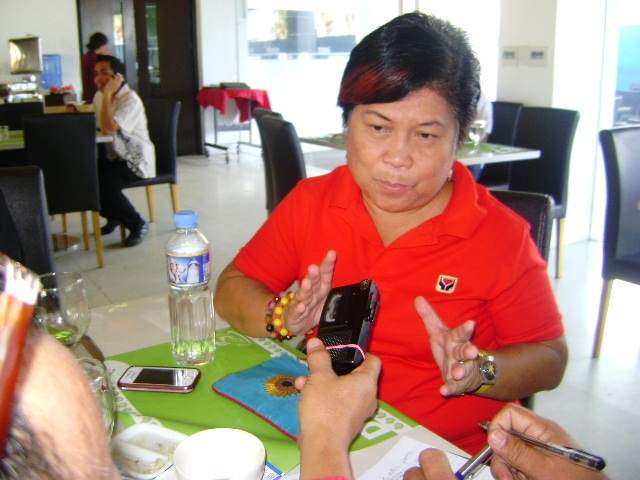
MANILA – The Department of Social Welfare and Development (DSWD) said Thursday the controversy about the street chiuldren who were rounded up during the recent visit of Pope Francis and brought to a camp-out activity in a resort in Batangas for orientation on the Modified Conditional Cash Transfer (MCCT) program also has a good outcome.
“On the good side about it, it is now getting clear to more people what MCCT is all about and how the program can give ‘fighting chance’ for the street dwellers and those suffering difficult situations,” DSWD Secretary Corazon J. Soliman said in a media interview at the DSWD Central Office in Batasan Hills, Quezon City.
According to Secretary Soliman, the controversy also served as an opportunity to make the people aware of the existence of the MCCT program which was piloted in 2013 and how that program continues to help the said poor sectors who are living in the streets that are risky for them.
MCCT is a poverty alleviation program quite similar to the Conditional Cash Transfer (CCT) that provides cash grants for the education and health of street children.
It differs from CCT in the sense that DSWD helps the street family develop a “change of mindset” by renting an apartment or room for the family for a period six to 12 months.
The rental is shouldered by DSWD so that street dwellers will appreciate the comfort of living in a secured place, away from excessive heat of the sun, or threats of getting wet when there is a heavy rain aside from facing risky factors like threats of prostitution and syndicates that roam around preying for innocent victims.
The DSWd chief said that through the series of articles and news that came out following the issue, and with the constant clarifications the agency has been making,people also began understanding the plight or situations of the street dwellers, the risks they face everyday, the challenges in helping them out and what are the things to be done to address their condition.
She noted that with more people talking about the controversy, many people were enlightened on the importance of helping them to get out of their difficult situations, like giving them skills training, job opportunities and educating them to live in a comfortable abode that requires also efforts among other committed stakeholders.
Soliman also said they never regretted their act of conducting the activity in time with the Papal visit for it also produced positive results and that they were able to justify that such was a “regular part” of the agency’s MCCT program “to orient the street dwellers on the risks of living on the streets and letting them know that there is life other than the streets and the streets are not the best place” for them.
“That decision is something we do not regret for such is a part of the MCCT implementation. I do not see anything wrong for that,” she pointed out.
She explained that through the camp-out activity, the street dwellers have the opportunity to experience what is life outside the streets, enjoy bonding with the family members, know about improving family relationships, roles and obligations, have the idea of living safely and happily in an ideal place for them.
She also said that there was no truth about the report that came out in a newspaper describing her as crying over the criticisms that followed the Nasugbu camp-out for the street dwellers.
“That was actually a blowing of my nose. I was not crying. There is no reason to cry,” she clarified.
The DSWD earlier explained that it did not hide the street children as they had emphasized that some even had practiced song and dance numbers for the Papal send-off program on Jan. 19.
The DSWD also said that poverty is something that cannot be hidden from the Pope and poverty itself is the reason for the implementation of poverty alleviation programs in the country designed to improve the lives of the poor.
The agency also said that contrary to earlier reports, only about 100 street families or 427 individuals consisting of parents and street children were included in the camp-out activity which was done in line with the MCCT program implementation.
The department further explained that such activity was planned ahead of the Pope’s visit.
“We do that once or twice a year. For this year, it was a consensus of the national and local government units (LGUs) to hold it in time for the Pope’s visit with the end in view of securing them from potential risks of being out on the streets,” Soliman said.